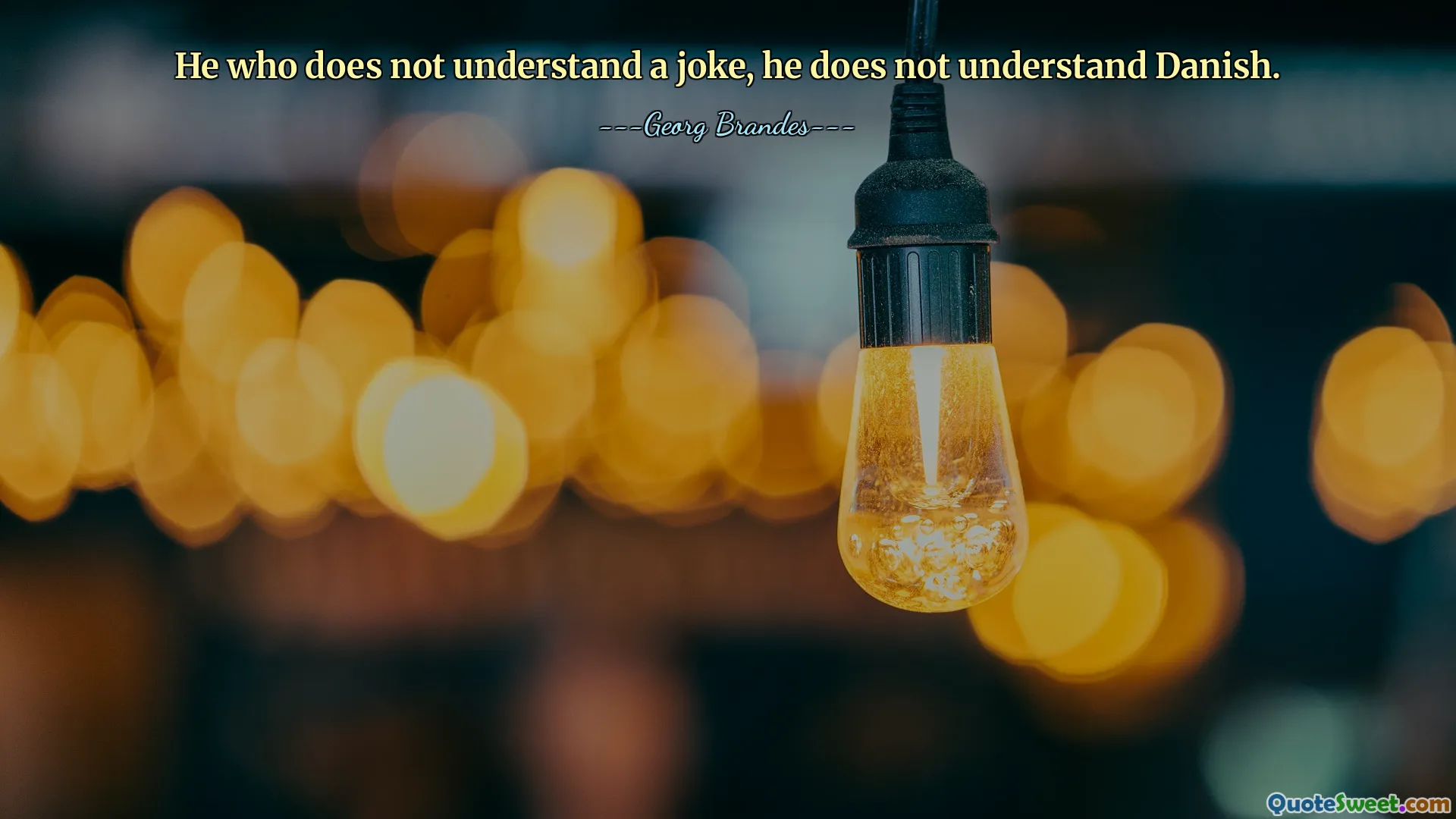
He who does not understand a joke, he does not understand Danish.
This quote highlights the intrinsic relationship between humor, cultural understanding, and identity. Often, a joke is more than just a punchline; it embodies shared experiences, social norms, and cultural references that require a certain level of familiarity to appreciate fully. When someone fails to understand a joke, it can suggest a disconnect from the cultural context that gives the humor its meaning, revealing deeper differences in language, history, or social customs. The statement, originally attributed to Danish humor, underscores how cultural nuances are embedded within even simple forms of entertainment like jokes. It prompts a reflection on how language and humor act as tools of cultural cohesion—people who understand these jokes are often seen as more integrated or familiar with the culture, whereas those who do not may be perceived as outsiders. At the same time, it raises broader questions about inclusivity and cultural literacy. In today’s globalized world, humor can serve as both a bridge and a barrier; understanding jokes often requires knowledge beyond mere words, including shared values and context. Recognizing this, it encourages us to appreciate the richness of cultural expressions and the importance of cultural competence. Ultimately, the quote is a humorous yet insightful reminder that language, humor, and cultural literacy are deeply intertwined, and that understanding these elements fosters a deeper connection with a community, language, or nation.











